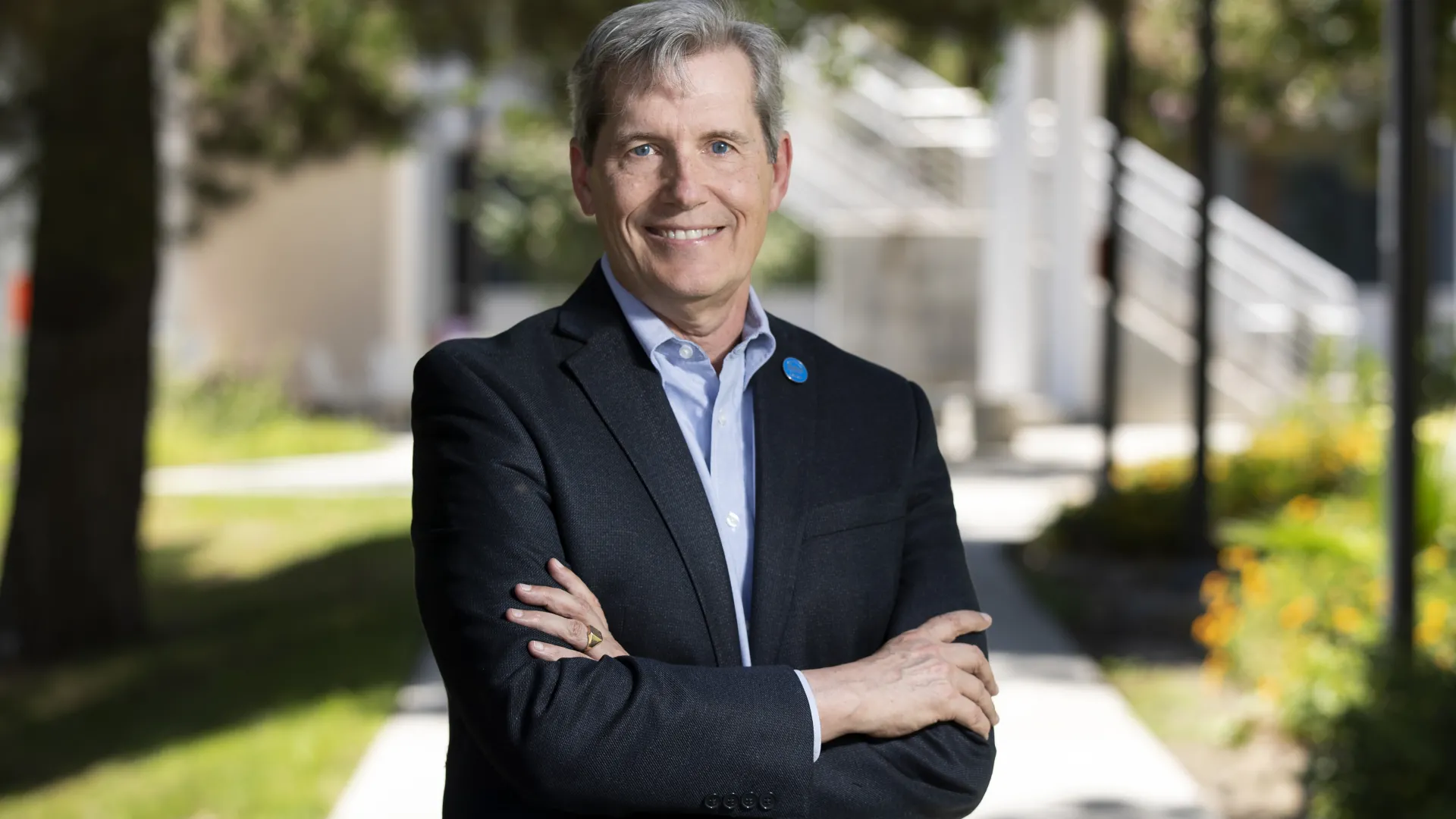Joe Gutierrez | Office of Strategic Communication | (909) 537-3007 | joeg@csusb.edu

The 21st century has brought political divisions, the likes of which have not been seen for generations, making the political climate around the world more and more dangerously partisan, said Montgomery Van Wart, a professor of public administration at Cal State San Bernardino.
“Whole populations have become more radicalized in which the only truth is that which their leaders tell them. Those who are not in ‘your’ group are unworthy of respect, and if they have any power, potentially dangerous,” said Van Wart, who teaches in the Jack H. Brown College of Business and Public Administration. “Those who consider themselves moderates and in the center are declining as people feel forced to take sides.”
That led Van Wart, who has done extensive research on leadership and is the author or co-author of 11 books on the topic, to the research and writing of “Jacinda Ardern’s compassionate leadership, a study of social change leadership in action,” published last month in the International Journal of Public Sector Management, and co-written with Michael Macaulay, a professor of public administration at the School of Government at the Victoria University at Wellington in New Zealand, and Katie Haberstroh, a student in the CSUSB doctoral studies program.
The article, which the authors wrote was the first rigorous academic study of Ardern, prime minister of New Zealand since 2017, found that in spite of the number of strongmen dictators around the world, there is political leadership that embodies civility and compassion, such as that exhibited by Ardern.
Van Wart said he was interested in studying not only the ongoing trends, but also on leaders who were bucking the trend, adding that “in these troubled times it pays to remember that political leadership is equally polarized.”
“With the increasing brazenness of over 50 strongmen dictators in the world like Putin, Xi, Maduro, al-Assad, and Erdogan and with the continuing tilt toward fascism of leaders of democratic states like India, Brazil, Hungary, and even the United States, it seems that leadership has taken a nasty turn in the last decade,” Van Wart said, referring to Russia’s Vladimir Putin, China’s Xi Jinping, Venezuela’s Nicolás Maduro, Syria’s Bashir al-Assad, and Turkey’s Recep Tayyip Erdoğan.
“Yet there is still evidence for political leadership that embodies civility, and compassion, which thrives even in an age of growing alienation and extreme populism,” he said.
Ardern, he said, practices compassionate leadership and is a vocal advocate for its robustness as a leadership style. Ardern is also a member of the Labour Party.
“She is a woman who is proud of her compassion and has shown on multiple instances how she can use her strong-minded compassionate attitude to be respected and get results,” Van Wart said. “Ardern has an international reputation for her compassionate leadership in the popular literature.”
The article used the model of Social Change Leadership (SCL) to evaluate Ardern’s approach to leadership as well as some notable successes and failures of her premiership.
Those good at social change leadership need three overarching characteristics: competence, trustworthiness, and collaborative skills.
Social change leaders are competent because they have political savvy, policy wherewithal, and administrative skills. They are trustworthy because of their personal integrity and clear passion for public service. The collaborative skills are built on their consistently displayed sense of egalitarianism, cultural sensitivity, openness to the ideas of others, comfort with complexity, and overall ability to build consensus.
The writers found 19 examples that clearly denote SCL of her leadership and it also found that in terms of performance goals there is a less clear picture with less coherence to the framework.
Van Wart said that he hopes readers who are interested in knowing more about leaders of “the center” will learn about the necessary components of compassionate leadership.
“Social change leaders, that is those who can express their humanity while dealing with tough political realities, used to be relatively common in the advanced democracies,” Van Wart said. “If we really want to cultivate more of them, we need to be able to articulate the attributes that make up the qualities of leaders who are interested in building us up, rather than those interested in breaking us apart.”